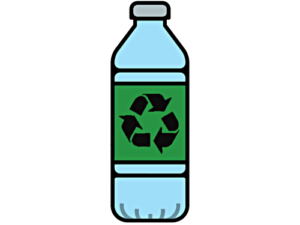Countries throughout the world, such as Zambia, Laos, and others are using plastics at alarming rates. Cheap PET, or polyethylene terephthalate, is taking these nations’ economies by storm, and filling up dumps and landfills in record time. Due to the fact that many of the countries that are affected by this pollution do not have much infrastructure built up, formal waste collection services do not exist. This allows plastic to accumulate on roads, highways, and makeshift landfills. These nations are experiencing the global issue of plastic pollution, and many do not have the resources to handle it correctly.
It’s not true that every developing nation is struggling with plastic pollution in this manner. Tanzania, Rwanda, Morocco, and several more have put in place nationwide plastic bag bans. One could even say that these countries are ahead of the Western world in limiting plastic pollution. These countries are implementing these bans based on a simple idea: If we were to ban plastics early in our country’s economic development, we will be able to combat the problem in a better way. In contrast, the United States, a developed country, is still struggling to ratify single-use plastic bans, even today.
Poorer countries are taking another stance on the issue. They are focused on the economic perspective of banning single-use plastics. As many of their citizens are jobless, they rely on selling thrown away plastics. Bottles, being the most commonly traded item, are sold to other traders, who then refill and sell them. If a country were to get rid of these bottles, then the traders would have nothing to sell, and could even protest against such legislation. These governments are trapped in a corner: Should they ban plastics and fight a major environmental problem, or should they support many of their citizens’ source of income?
Most governments have opted for the second option, as they are worried that an abrupt halt in income could cause major outrage throughout the country. One might think, what other options do these nations have? An organization known as African Impact may have found a solution.
African Impact is piloting a project called EcoBricking in Livingstone, Zambia. This project aims to recycle plastic bottles for another use, building structures, such as benches for schools. This solves both issues, the locals can collect plastic bottles and clean their town, and these plastic bottles can be used for a good cause, instead of just being refilled with water. Local students can also trade EcoBricks they make for items like stationery, toys, and football jerseys. In this way, locals get compensated for their plastics, and this plastic is used in a way that benefits the community. Some notable examples of projects that volunteers in collaboration with locals have recently completed include a chicken coop, school benches, and a compost bin. African Impact has plans to build walls, and even entire buildings, if the pilot project shows promising results.
In my opinion, this is one of the most innovative solutions to plastic pollution in developing countries, and hopefully, many other organizations pick up on this idea soon. In the long run, more complex structures could be constructed from recycled plastic including school buildings, small offices, and even containers to collect trash, a start of a formal waste management system. If the projects grow and continue, the governments of the countries could gradually reduce the use of plastics, as the citizens of the nation move from trading plastics to more skilled jobs. One could even say that the use of plastics in this way may contribute to economic advancement of these communities!
